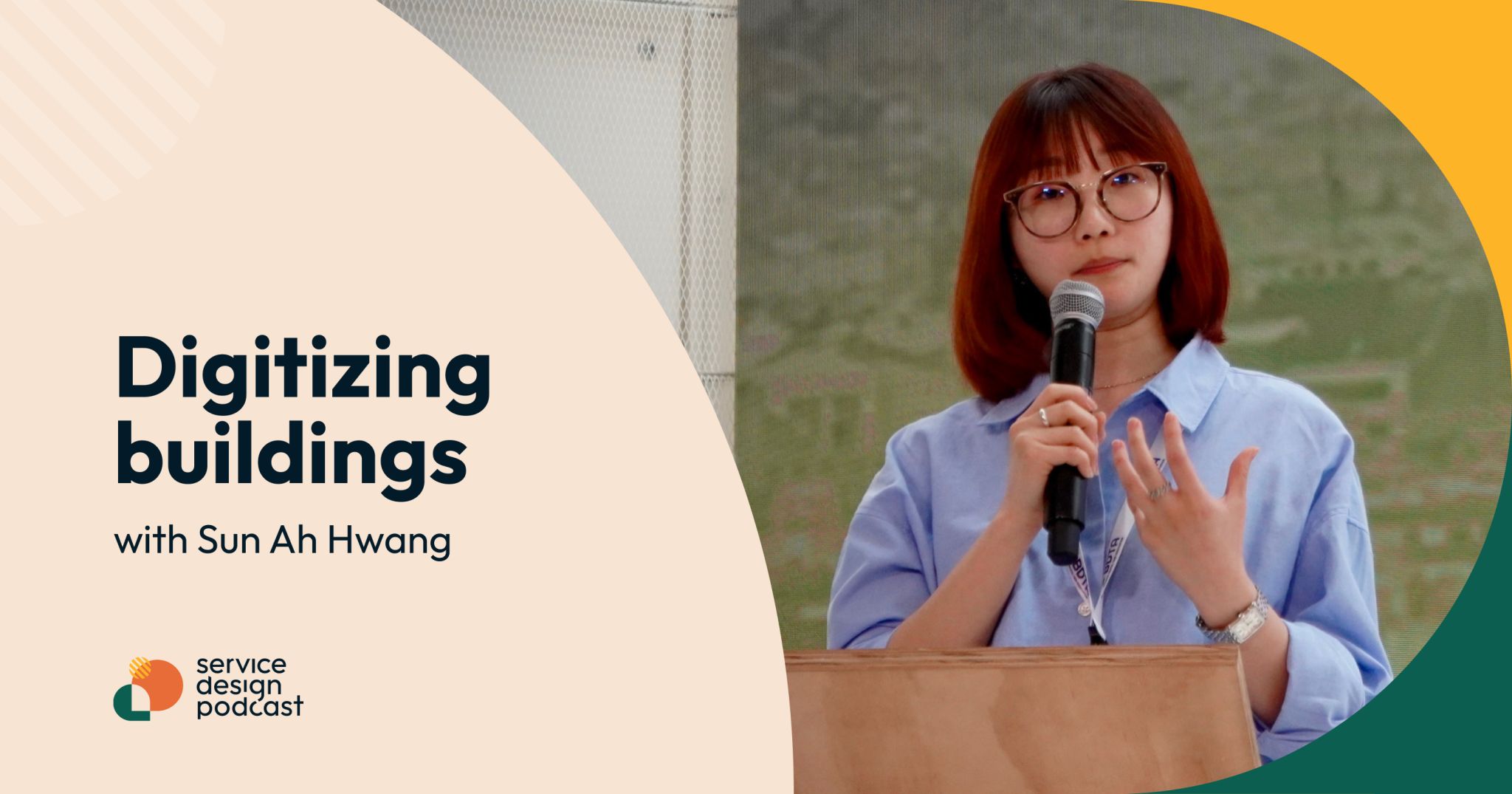New podcast episode featuring Demo-BLog: Digitising buildings with Sun Ah Hwang

Demo-BLog partner TU Delft’s Sun-Ah Hwang recently spoke on the Service Design Podcast about how Digital Building Logbooks (DBLs) are key to Europe’s energy transition goals and pivotal tools for architects, owners, tenants, governments, and designers.
Here, she dives a little deeper into what the podcast is about, what the discussion uncovered, and why you, regardless of your age or professional background, should listen to the episode!
Could you tell us about the podcast and how you got involved?
The Service Design Podcast is led by Demo-BLog partners Laurens Somers and Jeroen Depuydt from Leap Forward. In their series, they invite practitioners from various fields to discuss topics that range from Innovation to UX, Design Thinking and Systems Design.
I’ve been working closely with Laurens for Demo-BLog’s Social Inclusion Playbook, where we’ve discussed in great depth about ways to improve the user experience of DBLs in a way that is not discriminating to any type of user.
Since Leap Forward has been involved in the field of DBLs through the Demo-BLog project, they thought it was a good moment to discuss the tool on their podcast series as well. It was also seen as a good opportunity to disseminate our work on Demo-BLog to a new type of audience.
I was invited as a researcher in the field to provide more of a general background on the use of DBLs and their goals (at the EU, Member State and user levels), as well as how the tool has been implemented in different contexts, such as the UK, France, Germany, Flanders and the Netherlands.
What can listeners expect to hear in this podcast?
We really focused on describing what the DBL is and what it means to regular homeowners. This was in consideration of the fact that a big percentage of the public is still unaware of the tool, despite its increasing significance at the (EU) policy level.
I brought in my observations on this aspect, which largely revolve around empowering regular homeowners and their right to know the exact conditions of their homes. This way, the DBL enlightens them to not only have an overview of the renovation works that are necessary to meet increasingly-demanding building regulations, to improve the indoor air quality, and to decrease costs related to the performance of the building (i.e. energy bills), but also allows them to lead the conversation when meeting with contractors when embarking on a renovation.
Laurens, as a UX expert, touched on the design aspects of the DBL that could ensure that this goal to empower homeowners is met. For instance, he shared the ways in which Leap Forward carried out research to support our Demo-BLog DBL owners in identifying their target groups and their varying needs.
What are your biggest takeaways from the discussion?
The biggest takeaway for me has been really appreciating this chance to present my very academic knowledge on DBLs in a very colloquial way and on a public platform.
Personally, I did not have many opportunities to talk about these tools that may come off as too complex for the wider public. I thought about how difficult it would be to convince my 60+ year old, non-tech savvy parents to make use of a DBL should it be made available for them.
It was an incredible experience for me, and I’ve learned so much about the many ways to communicate my research.
Why should everyone, from kids to non-tech-savvy adults, listen to this podcast?
Stepping back to look at the bigger picture, simply put, our Earth is not as healthy as it was before. This means, as some places are already experiencing, it will become very difficult for us to play outside as we used to. Imagine things like having a coffee on a terrace, enjoying your time by the beach, and even just staying outdoors becoming unpleasant. You can already see our favourite beaches getting dirtier by the day, grass fields drying up, our winters and summers getting longer, and extreme weather conditions persisting.
These things are happening because of us, humans! Which means we also have the responsibility to make sure that our environment is nicer place to live in. It seems like an immense task, but we can actually start to make a difference by making sure that our homes are more environmentally friendly.
The podcast gives a small perspective on the roles of homes – how we build them and recycle them, and how we monitor and manage their energy use – as part of tackling this bigger issue. So, homeowners and even renters, this is for you! And kids who care about our planet, invite your parents to listen with you!